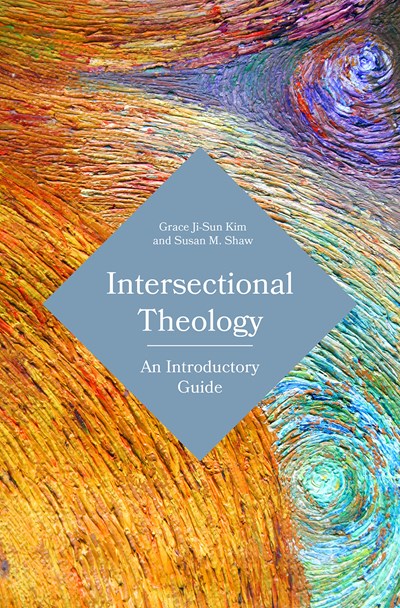Intersectional Theology: An Introductory Guide Spiral-Bound |
Grace Ji-Sun Kim, Susan M. Shaw
★★★☆☆+ from 31 to 100 ratings
Intersectional Theology: An Introductory Guide

Intersectional Theology: An Introductory Guide offers a pathway for reflective Christians, pastors, and theologians to apply the concepts and questions of intersectionality to theology. Intersectionality is a tool for analysis, developed primarily by black feminists, to examine the causes and consequences of converging social identities (gender, race, class, sexual identity, age, ability, nation, religion) within interlocking systems of power and privilege (sexism, racism, classism, heterosexism, ableism, ageism, nativism) and to foster engaged, activist work toward social justice. Applied to theology, intersectionality demands attention to the Christian thinker's own identities and location within systems of power and the value of deep consideration of complementary, competing, and even conflicting points of view that arise from the experiences and understandings of diverse people.
This book provides an overview of theories of intersectionality and suggests questions of intersectionality for theology, challenging readers to imagine an intersectional church, a practice of welcome and inclusion rooted in an ecclesiology that embraces difference and centers social justice.
Rather than providing a developed systematic theology, Intersectional Theology encourages readers to apply its method in their own theologizing to expand their own thinking and add their experiences to a larger theology that moves us all toward the kin-dom of God.
"Given the unprecedented religiopolitical realities of the early 21st century, this book needs to be at the top of every pastor's 'must read' list. In ways both academic and acutely personal, Susan Shaw and Grace Ji-Sun Kim invite us to the brave work of listening across lines of gender, race, class, nation, sexual identity, ability, age, and other forms of social difference in which we discover not only more of God and our neighbors, but also the still untransformed parts of ourselves." --Julie Pennington-Russel, First Baptist Church of the City of Washington, DC
"In this book, Grace Ji-Sun Kim and Susan M. Shaw offer a remarkable resource to the churches. The authors lift up the concept of intersectionality as a theological prism through which our lives, collectively and individually, can be more honestly assessed and appreciated. The book is an open window into new depths and breadths of what is involved in thinking truthfully about God and ourselves as radically relational beings who can find ourselves, and one another, only at the intersections of our many, varied, and evolving identities. Intersectional Theology is a brief, readable introduction to Christian theology at its most truthful best." --Carter Heyward, emerita, Espiscopal Divinity School and author of She Flies On: A White Southern Christian Debutante Wakes Up
"Kim and Shaw invite us to adopt a theology that embraces differences, disruptions, and the margins by listening beyond our comfort zone and into deeper layers of our faith so that we leave no one out. A gracious invitation that we would do well to take up in troubling times such as these. This book gives us the guide to do so." --Emilie Townes, Vanderbilt University Divinity School
"Grace Ji-Sun Kim and Susan M. Shaw offer a crisp, concise, and well-researched introduction to Christian intersectional theology that will take its place as a standard text for this new and increasingly important approach not just to Christian theology but to Christian practice in the world. Intersectional Theology is a primer on theological method that will help to solidify the increasingly nonnegotiable claims, at least in progressive circles, that theology begins in human experience, that human experience involves navigating one's multiple social identities within lived contexts of simultaneous oppression and power, and that the goal of Christian theology and practice should be justice and liberation for all, with no one left out. Highly recommended." --David P. Gushee, Distinguished University Professor of Christian Ethics and director, Center for Theology & Public Life, Mercer University
Rev. Dr. Grace Ji-Sun Kim is a professor of theology at Earlham School of Religion and author, coauthor, or editor of numerous books, most recently Spirit Life; Invisible; and Intersectional Theology. She has served on the American Academy of Religion's board of directors, is an ordained minister in the Presbyterian Church (USA), and is the host of the Madang podcast from The Christian Century. Kim writes for Baptist News Global, Sojourners, and Faith and Leadership and has published in TIME, The Huffington Post, The Christian Century, US Catholic Magazine, and The Nation. She lives in Bethlehem, Pennsylvania.